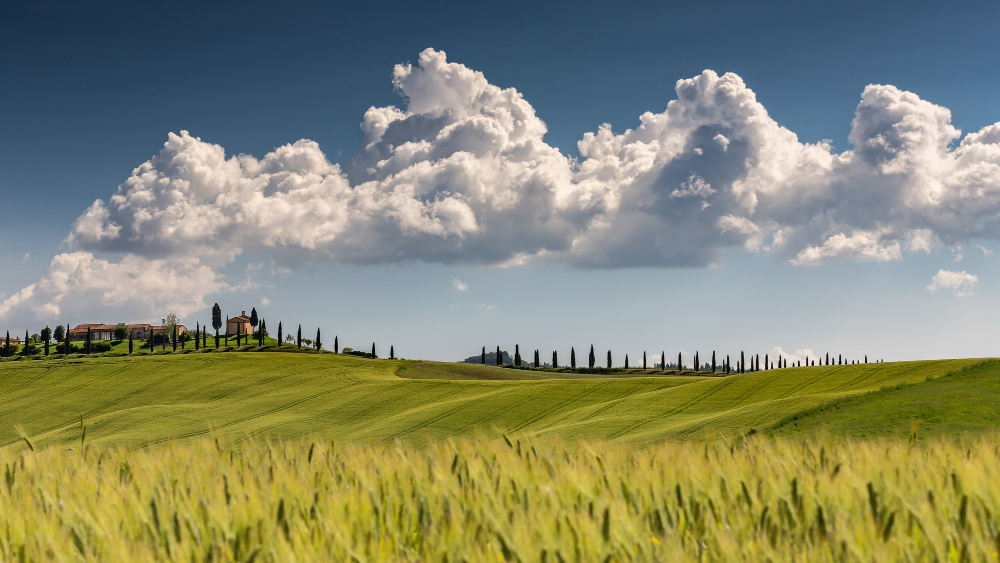In Pollica (SA), capital of the Mediterranean Diet, Future Food Institute has inaugurated the Paideia Campus, a 12-year impactful project, where one can learn a new type of sociality and live the concept of integral ecology, a fundamental approach to face the transition necessary to achieve the Goals of the 2030 Agenda, in lifestyle and development models of which the Mediterranean Diet is the most concrete example.
The Paideia Campus expounds a permanent version of the same concept: everything is connected – environmental protection and human health, regeneration of the territory and citizens’ well-being, social justice and climate change. The Paideia Campus was created to teach people how to see these connections and thus design a better future for Italy, for the Mediterranean, and for the entire world.
The Campus takes its name from the Greek term “Paideia,” which connotates “integral human education” as a weapon to navigate towards the ecological transition. It is the new project of Future Food Institute: a campus that aims to safeguard and enhance the cultural and natural heritage of the Mediterranean ecosystem through the commitment of a dynamic and vital community of young people engaged in the development of innovation in the agri-food field.
The mission and thus the activity of the Future Food Institute concentrates on three dimensions.
We begin with KNOWLEDGE, organizing not only international research projects but also training programs that welcome people from all walks of life from students to teachers and from start-upers to industry leaders from all over the world.
Then the theme of INNOVATION: today you can no longer think of innovation without thinking of sustainability and this is a perfect place to test and prototype innovative solutions for sustainability, sustainable fishing and agriculture, slow tourism, repopulating the villages and making livable the inland areas of Italy that today must be enhanced and protected.
Finally, the involvement of the COMMUNITY, without which these places do not live. The community is a heritage that must be involved, preserved, and regenerated so that it can hand down these millenary traditions over the centuries. And this community is magical, it welcomes you by showing you that the land must be cared for, it teaches you to appreciate the slow pace, the care of the soil and of the territory.
These dimensions gain shape and context in Pollica, a rural village in the south of Italy, the epicenter of the Mediterranean lifestyle and the crossover point of history, culture, and anthropology of this ancient heritage. In a perfect balance between humanistic and scientific culture, the Mediterranean Lifestyle and Diet have contributed to the construction of an identity that has now gone well beyond territorial or food borders. It has become a model within which we can concretely face the coming years, responding to the challenges inherent in the sustainable development objectives of the UN Agenda 2030 and the new European Farm to Fork strategy for the reduction of environmental impacts of agri-foodstuffs, which is considered critical at the global level. It is also establishing itself as a practical system within which to build a truly informed food tech future, one which begins locally and builds to a global scale while retaining the priorities of education and future generations.
In Pollica, Future Food Institute is fostering a prototyping, in collaboration with local institutions and – more importantly – through a process of co-design with the local community, an historic change of perspective, from linear to circular systems, from reductionist to complex and holistic paradigms, from an ego-centric vision to an eco-centric vision of the role of man in the complex system that links environment, society and economy.
Through this change of perspective, public administration becomes the creator of the enabling environment for the flourishing of good practices; infrastructures are tailored to the needs of the community which, from being passive receiver of directives, actively contributes to the life and preservation of traditions and territory; consumers become consumer-actors, and farmers are no longer mere producers of foodstuffs, but true ambassadors-custodians of nature and ecosystems.
Eleven years after the appointment of the Mediterranean Diet as a UNESCO Intangible Cultural Heritage of Humanity, the awareness of how it is much more than a simple food model, but a wealth of science, traditional knowledge, skills, and identity values generated by a territory, continues to grow. Cilento, which can be considered as a real laboratory of land and marine biodiversity, is capable of releasing unique natural wealth in the world.
The Paideia Campus is a cultural project that intersects multiple disciplines, has deep roots in the Paleolithic Era and projects its values into the future for an Integral Ecological Regeneration.
Pollica and the Mediterranean Diet: from cradle of culture and intangible heritage of humanity to a model and strategy for the integral development of villages
“Pollica 2050 – Mediterranean Living,” which focuses on the Mediterranean Diet as a model of Integral Ecological Regeneration, is a strategic project designed to enhance dormant resources. This initiative urges us to think and act in a systemic way, directing every action to the creation of inclusive prosperity starting from the integral ecological approach, tested over the years, and applied in every phase of the project.
This strategy has been prototyped in the field for a year, and today, thanks to the hypothesized management tools, aims to create a real ecosystem capable of feeding itself and regenerating itself to persist over time. It will diffuse in space so that the entire territory can benefit from it. Today, it is necessary to network and be networked, as such, it will go deep so that the impact will be truly transformative.
There are six concrete areas of intervention capable of safeguarding the environment, favoring the new generations, guaranteeing social justice for all, implementing a model of truly sustainable, participatory, and integral development.
